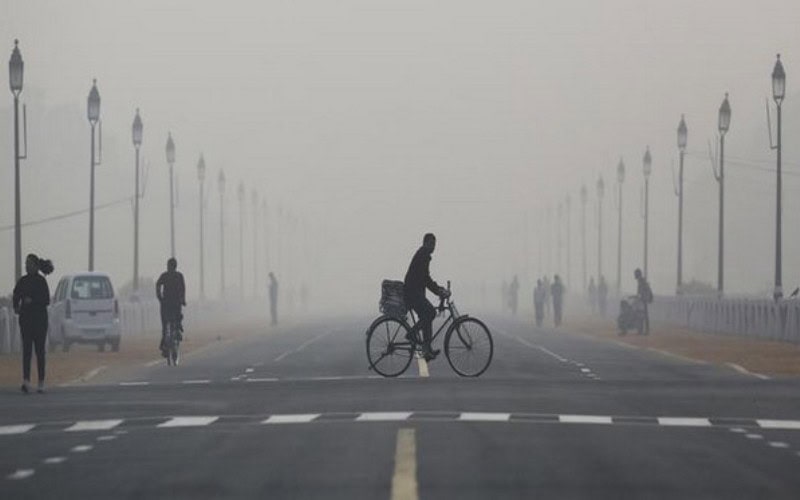New Delhi: People residing in the national capital woke up to a hazy morning on Friday, a day when the region’s Air Quality Index (AQI) was rated as ‘Very Poor’ at 343 by System of Air Quality and Weather Forecasting And Research (SAFAR).
The AQI between 0 to 50 is considered good, 51 and 100 falls under the category of ‘satisfactory’, 101-200 is marked as ‘moderate’, 201 to 300 ‘poor’, 301 to 400 ‘very poor’ and 500 and beyond is considered as ‘severe’.
The organisation has predicted that the air quality of Delhi will continue to remain in the ‘very poor’category for the next three days.
In Gujarat’s Ahmedabad’s too, the air quality has plummeted to ‘poor’ category.
SAFAR in its advisory has adviced people living in polluted cities to wear masks known as N-95 pr P-100 respirators. It has also advised people to avoid all physical activity outdoors and move activities indoors.
“Avoid prolonged or heavy exertion. If the air conditioner provides a fresh air intake option, keep that closed,” he added.
In the financial capital Mumbai, the air quality remained in the moderate category with PM 10 at 158.
Experts have predicted that for the next few days the air quality will remain in the same quality between 150 to 158 at PM 10.
If one looks closely, the effects of air pollution on health are vast and serious.
According to research conducted by Lancet Planetary Health, air pollution is not only the cause of respiratory diseases but can also trigger the onset of diabetes. The research further revealed that out of 7 every one new case of diabetes is caused by air pollution alone. It claimed that pollution contributed to 3.2 million new diabetes cases globally in 2016.
[source_without_link]ANI[/source_without_link]

